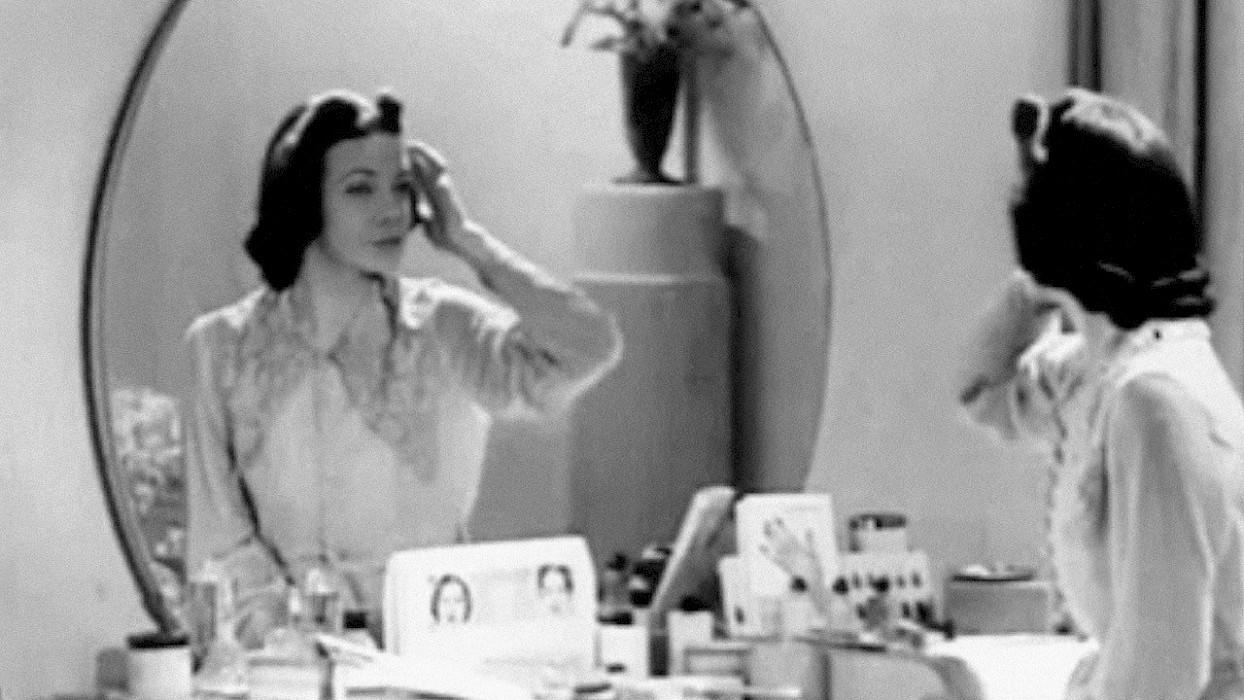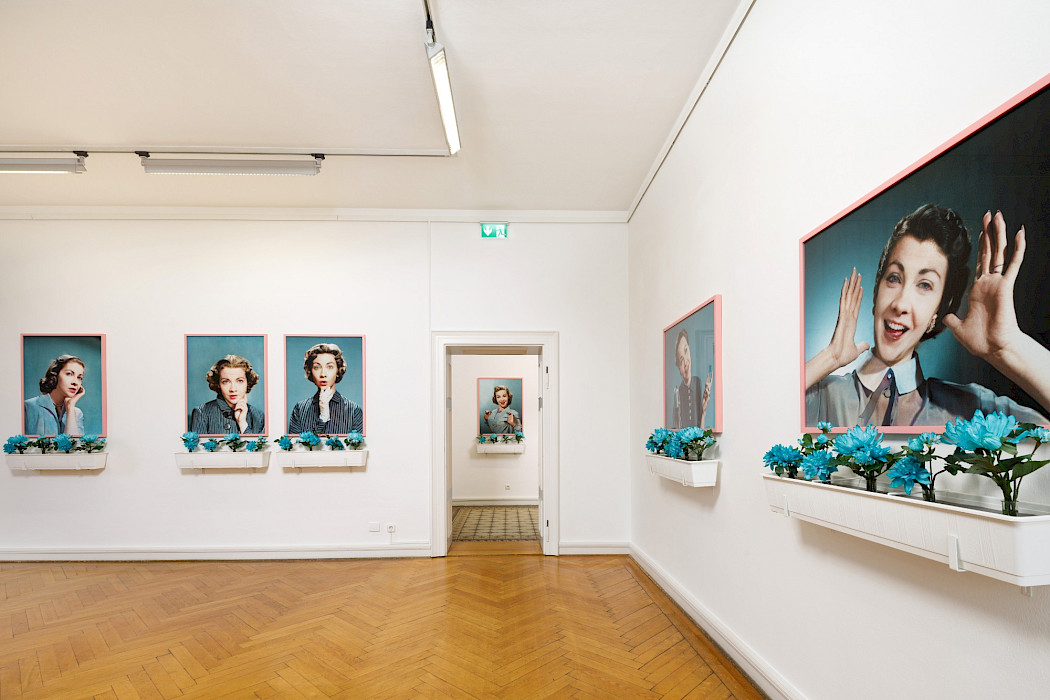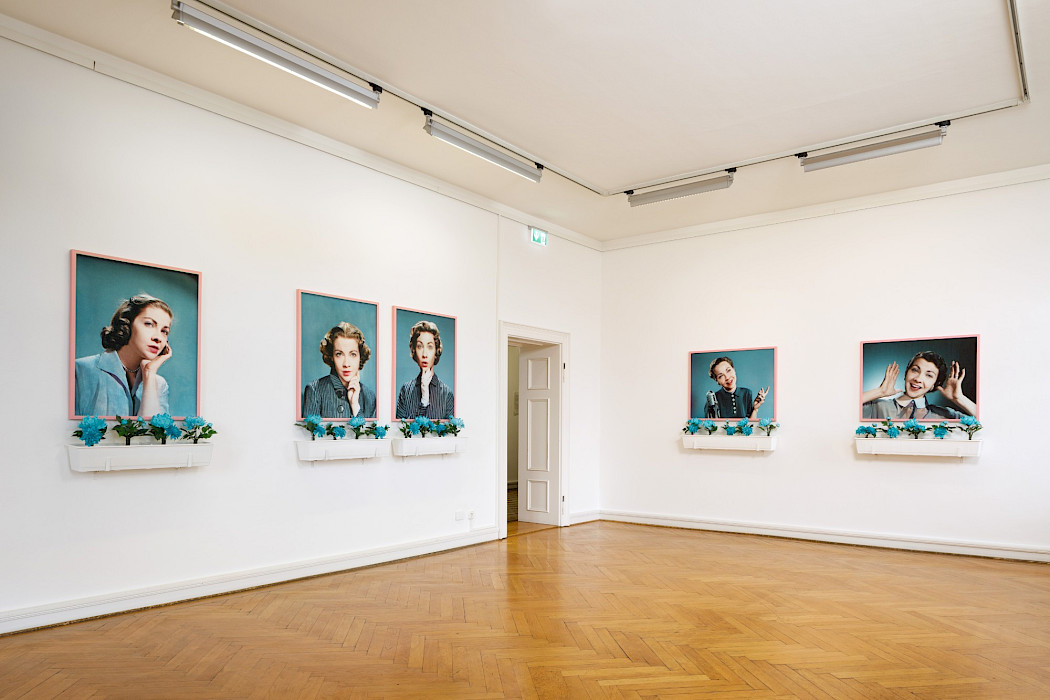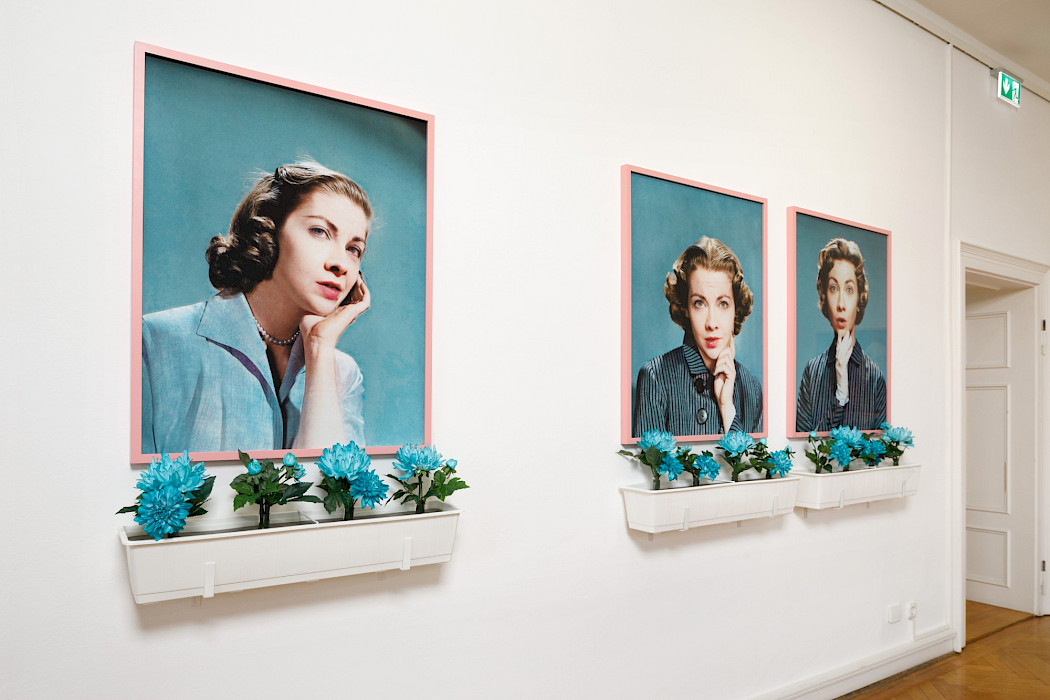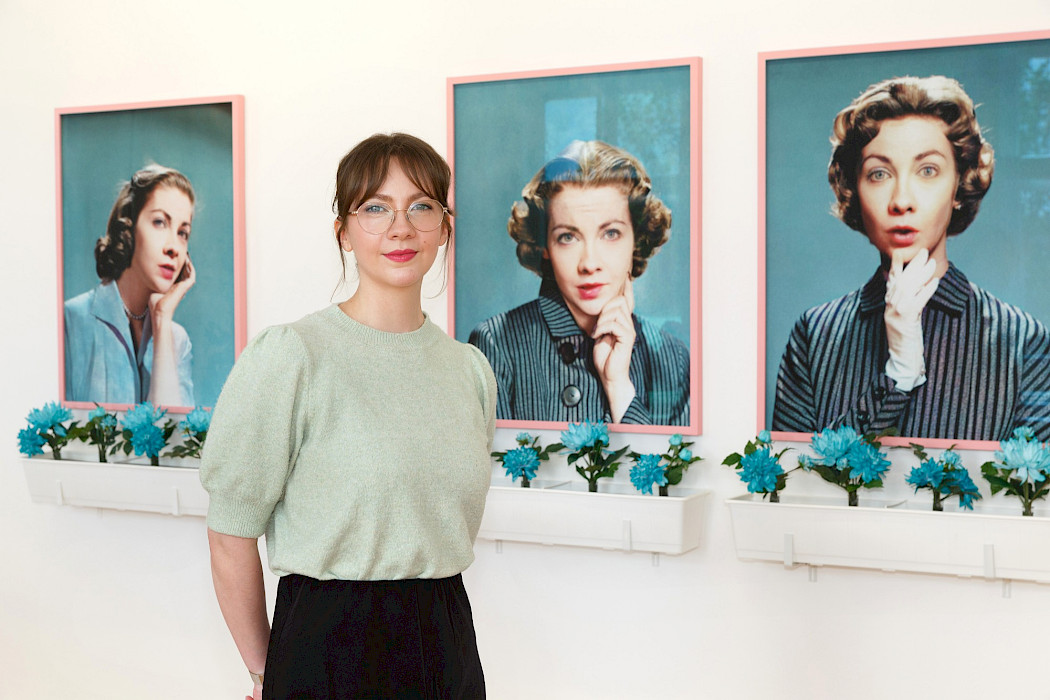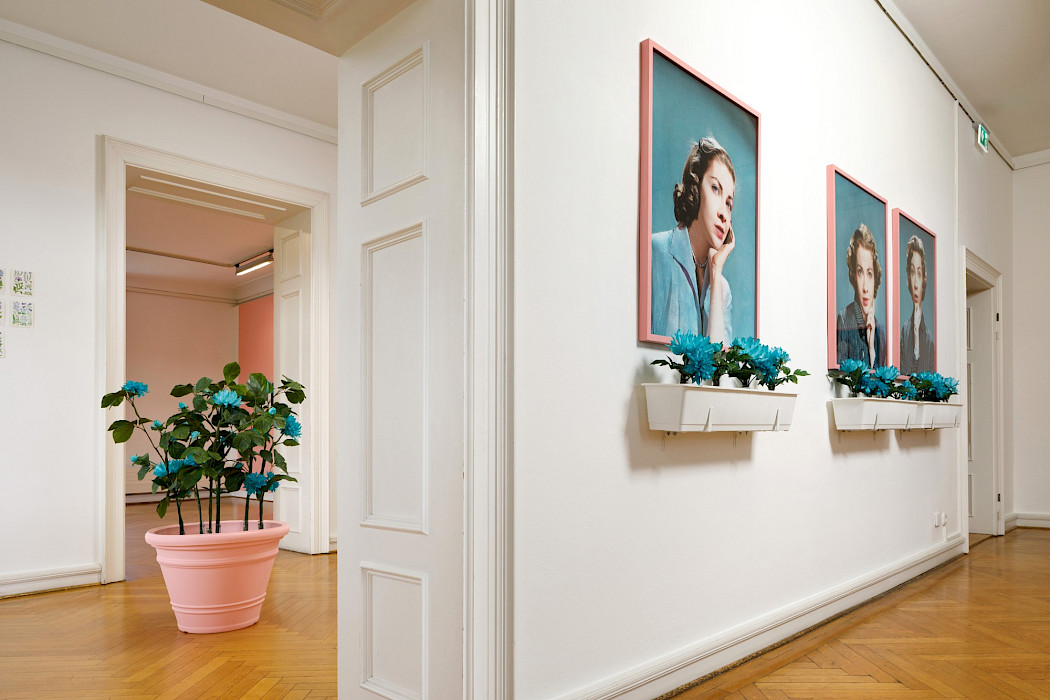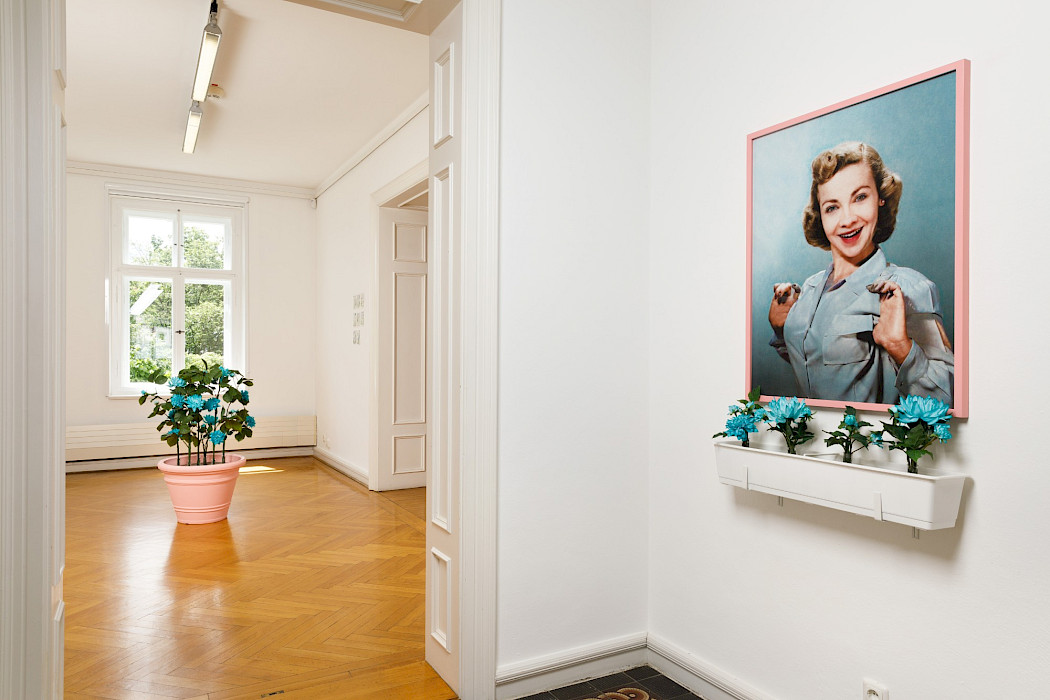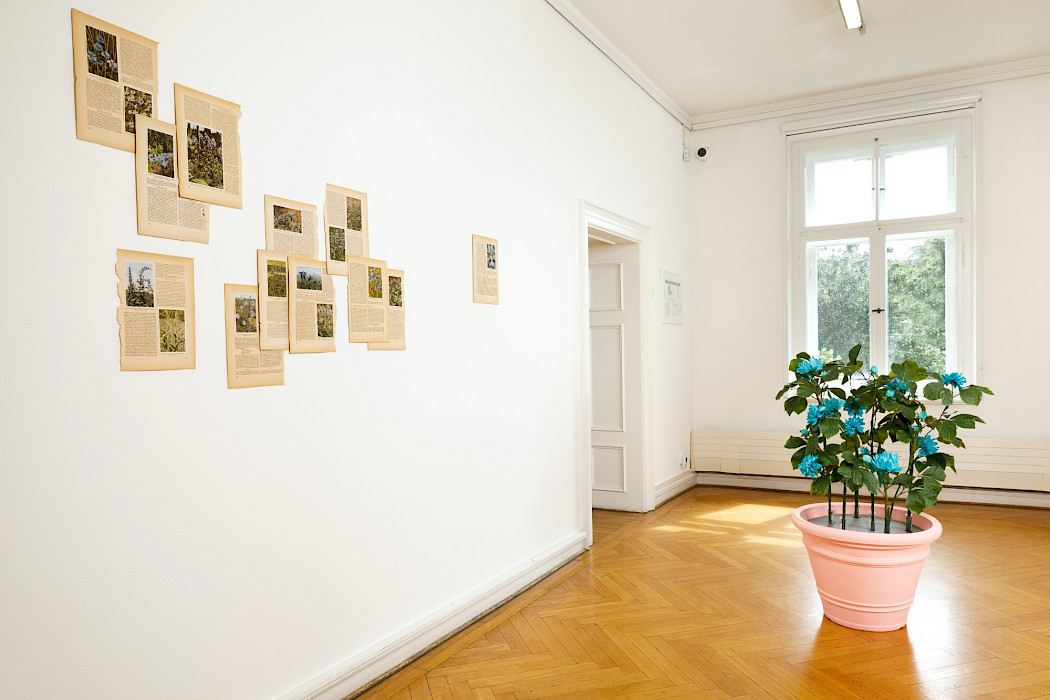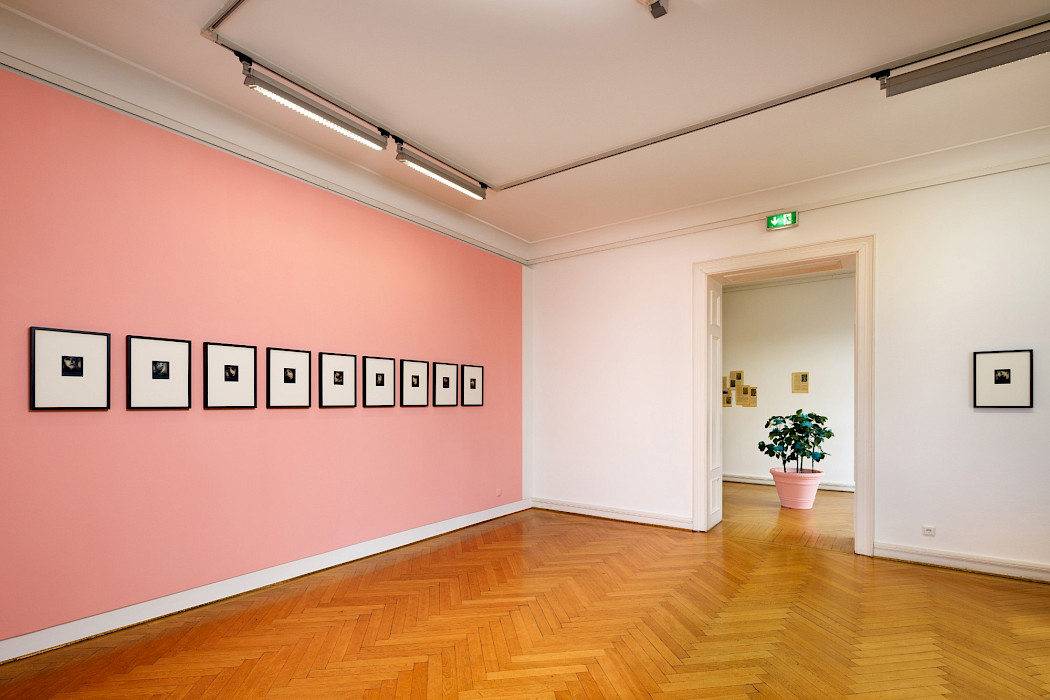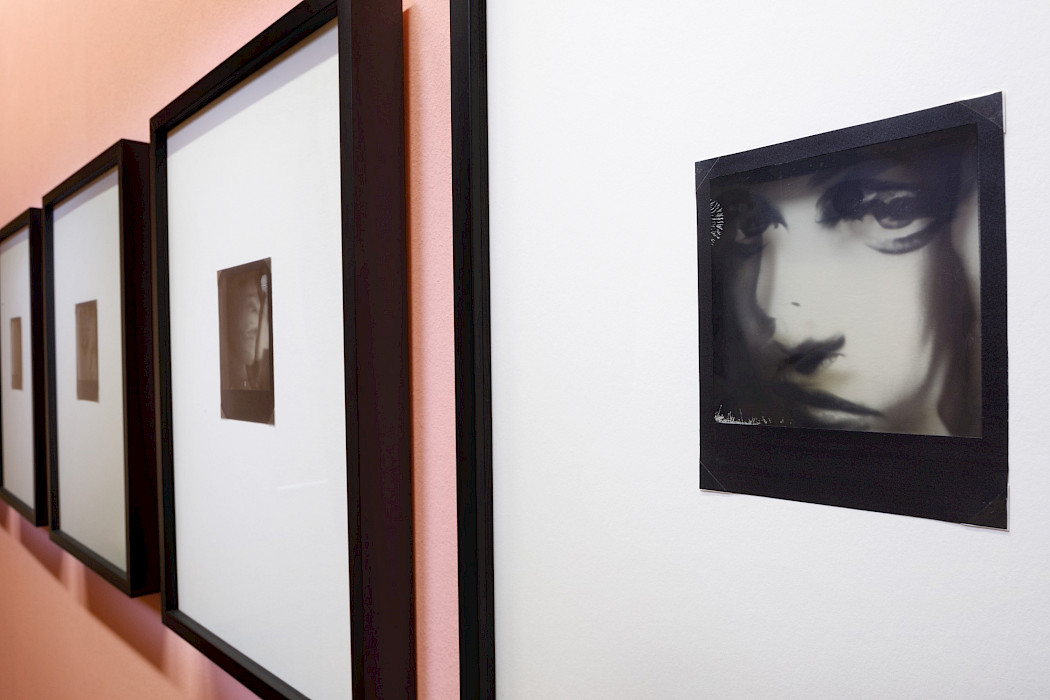Antonia Gruber: GOOD WIFE
Exhibition levels [1 & 2]
"Good wife, wise mother" – this was how the ideal role of women was commonly understood in Western societies around the middle of the last century. Today, this stereotypical image of the protective mother and caring wife is contrasted with the self-confident and independent woman of the present day.
Antonia Gruber's exhibition “GOOD WIFE” examines the changing role of women in society. The Cologne-based conceptual and media artist takes a – at times ironic – look at what society expects of women today and in the past.
For her series "BLUE DAHLIA_", the artist used artificial intelligence to merge her biometric pass-port photo with portrait photographs of women from the 1950s and 1960s. As a conglomerate of self-portrait and the identity of others, these works reject the essential nature of a portrait and its claim to visualize the identity of the people depicted. Instead, the superficiality of otherworldly beauty, familiar from fashion photography, is emphasized. However, by deliberately retaining the glitches created during digital image manipulation, the artist highlights the artificiality and mask-like quality of the resulting images of women. The digitally morphed source photo also produces an "uncanny valley" effect, i.e. images have such a high degree of realism that they make the viewer uncomfortable. The title “BLUE DAHLIA_” may be understood as an allusion to the unsolved murder of the Hollywood actress Elizabeth Short, known as the "Black Dahlia Murder". However, it also evokes associations with the motif of the blue flower in German Romanticism as a symbol of unattainable beauty, of what is unattainable in principle. The longing for the blue flower becomes a metaphor for striving for emancipation.
The "HOLAROIDS" merge three layered, transparent Polaroid photos into a new image. Each individual image shows a singular portrait; as a whole, they form a fictional character. The Polaroids overlap, creating a three-dimensionality that is intensified further during the viewing process and from changing angles. The viewer thus becomes an active part and acts as a formative element.
Antonia Gruber's "THE GOOD WIFE ́S GUIDE", which the town of Schwandorf acquired in 2022 for its permanent collection, is presented as a large video installation on the second floor of the Kebbel Villa. It is based on hundreds of advertisements and etiquette guides for women in the 1950s and 1960s. This film material reveals the prevailing image of women at the time, an image that may seem outdated from today's perspective, but which women still have to face today, albeit in a more subtle form. The artist bridges the gap to the here and now by using deepfake software to superimpose her face like a mask over that of the protagonists from back then. The disruptions in the picture emphasize a façade that was already fragile at the time. This is accompanied by a male Siri voice reading out "The good wife's handbook". Due to the monotony of the performance and the slowing down of the original recordings, the speaker seems to have fallen out of time. "The Good Wife's Handbook" is said to have first appeared in “Housekeeping Monthly” in 1955, although it is unclear who wrote it and how seriously it should be taken, which creates another layer between irony and historical testimony. A modern woman looks at us through the artist's digitally integrated face. Her actions in the video are in diametric opposition to the text: They appear rebellious, tongue-in-cheek, and accusatory but also derisive.
Antonia Gruber's artistic practice questions the validity of reproduced images in an experimental, and radical way. The exploration and depiction of mental states are closely connected to the materiality of the respective medium. She thus bridges the gap between past and present, between reality and fiction, and challenges our perception through deliberate changes of perspectives.
Antonia Gruber (*1993 in Remscheid, lives in Cologne) completed her studies with Prof. Ute Mahler and Ingo Taubhorn at the Ostkreuzschule für Fotografie in Berlin as a Meisterschülerin in 2020. In 2016, she received her Bachelor of Fine Arts with honors from Alanus University near Bonn. From 2015 to 2016, she worked as a photo and production assistant for Michael Reisch and Vanessa Leissring. She has received numerous grants and awards, including project funding from the City of Cologne (2023), Projektfonds Kulturförderung, Berlin Friedrichshain-Kreuzberg (2021), and the Reclaim A-ward (2019). Her work has been shown in numerous solo and group exhibitions throughout Germany, including Galerie Falko Alexander, Cologne (solo exhibition 2024), Japanisches Kultur-institut, Cologne (2024), Kunstpalast, Düsseldorf (2023), Willy-Brandt-Haus, Berlin (2023), former nuclear shelter, Hemau (2022) and Kunstverein Wesseling (solo exhibition 2020). In 2023, her video "THE GOOD WIFÉS GUIDE" was selected for the competition of the "29th International Short Film Week" in Regensburg.
